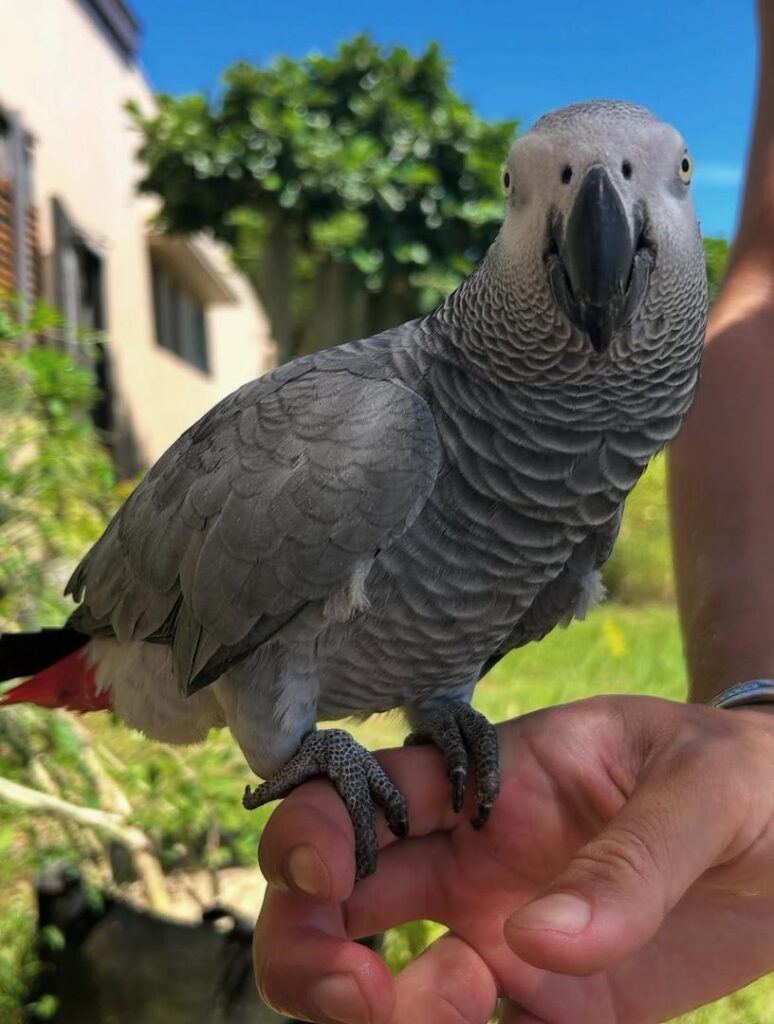Avian Expertise: The Complete Guide to African Grey Parrot Care
Understanding Your African Grey’s Unique Needs
The African Grey Parrot is renowned not just for its intelligence, but for its complex physical and emotional needs. At [Your Aviary Name], we believe that expert, proactive care is the foundation of a long, healthy, and joyful life for your companion. This guide distills our years of specialized experience into the essential knowledge you need.
1. The Cornerstone of Health: Nutrition
An African Grey’s diet is the single most important factor in preventing disease and ensuring vitality.
What to Feed:
-
High-Quality Pellets (75% of diet): Should be the staple, formulated specifically for African Greys. We recommend brands like Harrison’s, TOP’s, or Roudybush.
-
Fresh Vegetables (20% of diet): Offer a colorful variety daily. Favorites include:
-
Leafy Greens: Kale, Swiss chard, mustard greens
-
Orange & Yellow Veggies: Sweet potato, carrots, bell peppers (rich in Vitamin A)
-
Cruciferous Vegetables: Broccoli, cauliflower
-
-
Fruits, Nuts, and Legumes (5% of diet): Use as treats and supplements. Berries, papaya, and almonds are excellent choices.
What to Avoid:
-
Toxic Foods: Avocado, chocolate, caffeine, alcohol, apple seeds, onion, garlic.
-
High-Fat/High-Sugar Foods: Fried foods, dairy, excessive seeds (sunflower seeds are like candy—sparingly only).
Pro Tip: Create a “chop” – a finely chopped mixture of fresh veggies and legumes that can be frozen in weekly portions for convenience.
2. Creating the Ideal Habitat
Your parrot’s environment directly impacts its mental and physical health.
The Cage:
-
Size: Absolute minimum of 36”W x 24”D x 48”H. Larger is always better.
-
Bar Spacing: ¾” to 1” is ideal to prevent injury.
-
Placement: Located in a well-lit, family-centric area of your home (like the living room), but against a wall for security. Avoid kitchens (fumes), drafty areas, and direct sunlight.
Cage Furnishings:
-
Multiple Perches: Offer a variety of diameters and textures (natural wood, rope, cement) to exercise feet and prevent arthritis.
-
Foraging Toys: Essential. Hide treats in puzzle toys to stimulate their brilliant minds and prevent boredom.
-
Destructible Toys: Wood, cardboard, and palm leaf toys satisfy their innate need to chew and destroy.
3. Enrichment & Socialization: Preventing Boredom & Plucking
An under-stimulated Grey is an unhappy Grey, often leading to behavioral issues like feather plucking.
-
Out-of-Cage Time: A minimum of 3-4 hours of supervised out-of-cage time is non-negotiable for their well-being.
-
Training: Use positive reinforcement (treats, praise) for simple commands like “step up.” This builds trust and mental muscle.
-
Social Interaction: Include them in family activities. Talk to them, sing, or just let them be near you. They are flock animals and crave social connection.
-
Environmental Stimulation: Leave a radio or TV on for them when you leave. Provide a window view (with a shaded area to retreat to).
4. Recognizing Signs of a Healthy vs. Unwell Parrot
Signs of a Healthy Grey:
-
Bright, alert eyes
-
Clean, smooth feathers
-
Consistent appetite and water consumption
-
Regular, well-formed droppings
-
Active and vocal
Red Flags Requiring an Avian Vet:
-
Fluffed feathers and lethargy for extended periods
-
Loss of appetite or change in drinking habits
-
Change in droppings (color, consistency)
-
Sitting on the cage floor
-
Wheezing, sneezing, or nasal discharge
-
Visible injury or bleeding
Crucial: Establish a relationship with an avian-certified veterinarian before an emergency arises. Annual check-ups are mandatory.
5. The Lifelong Commitment
African Greys can live between 40 to 60 years, sometimes longer. Bringing one into your home is a commitment that will span decades and life changes. It requires planning for their care in your will and ensuring your family understands the responsibility.
Your Partner in Avian Care
This journey is one you don’t have to make alone. Our expertise is your resource. From diet consultations to behavioral advice, we provide lifetime support to all our parrot families.

